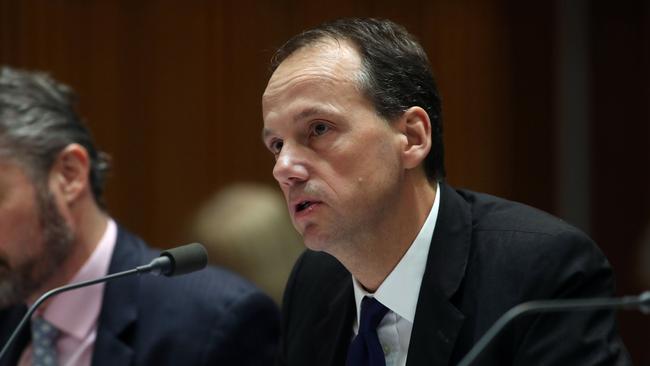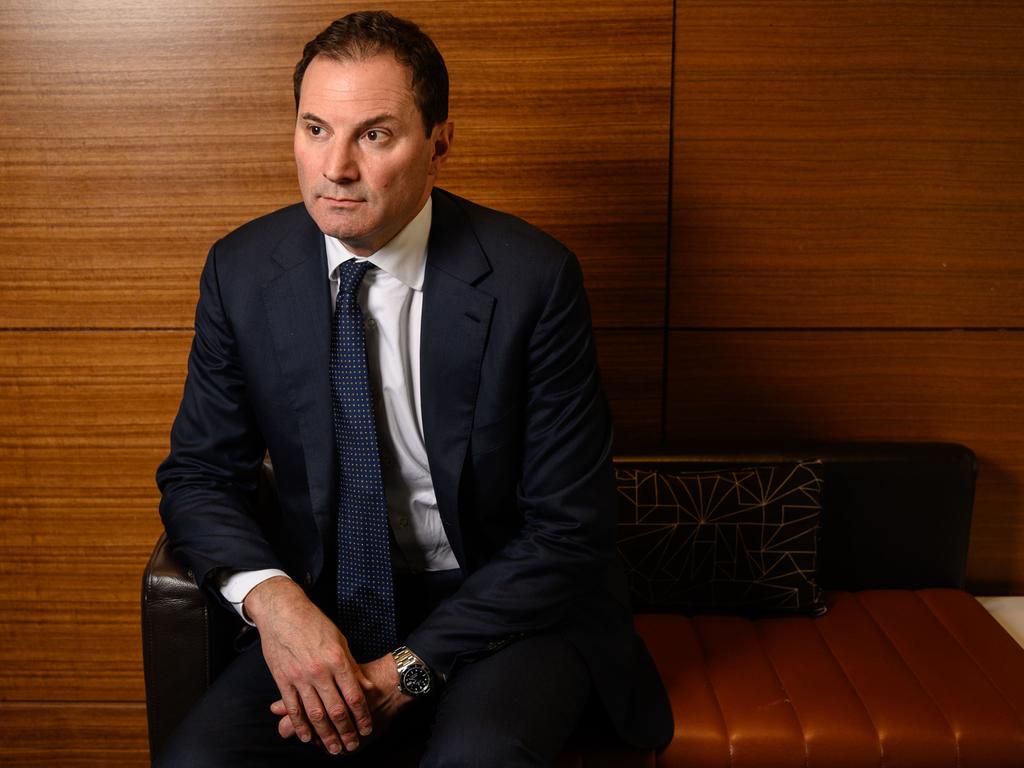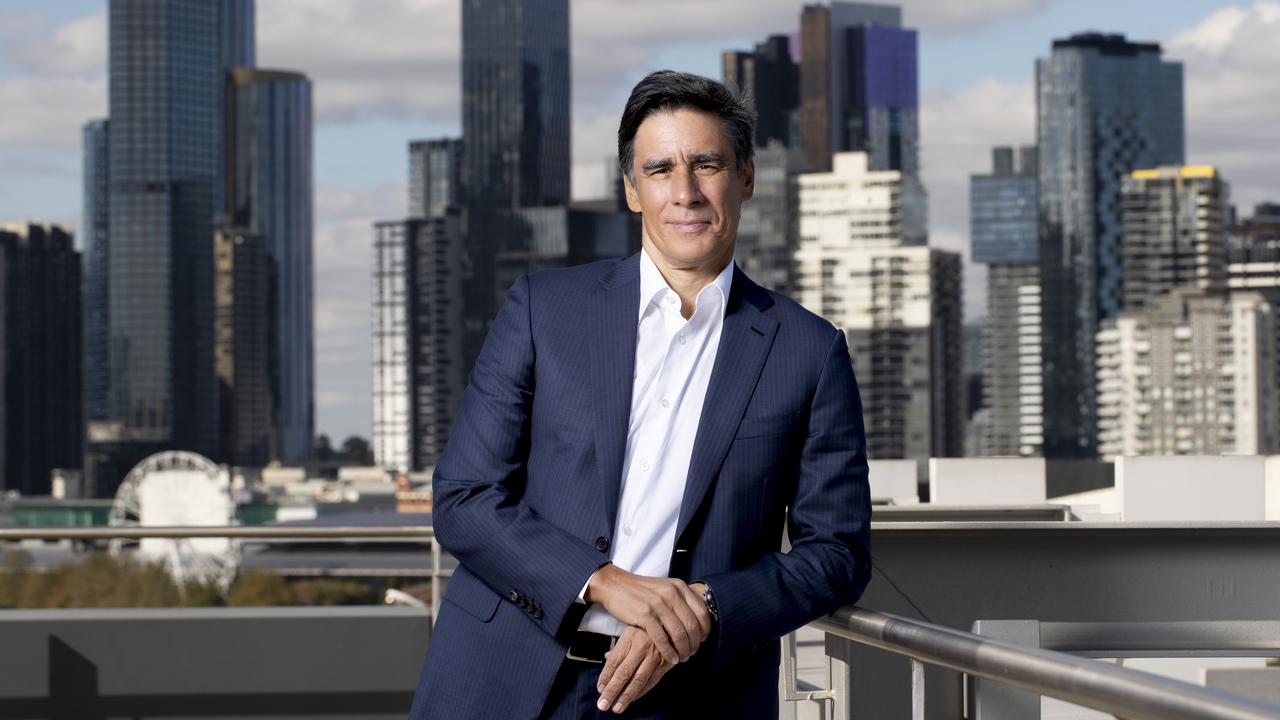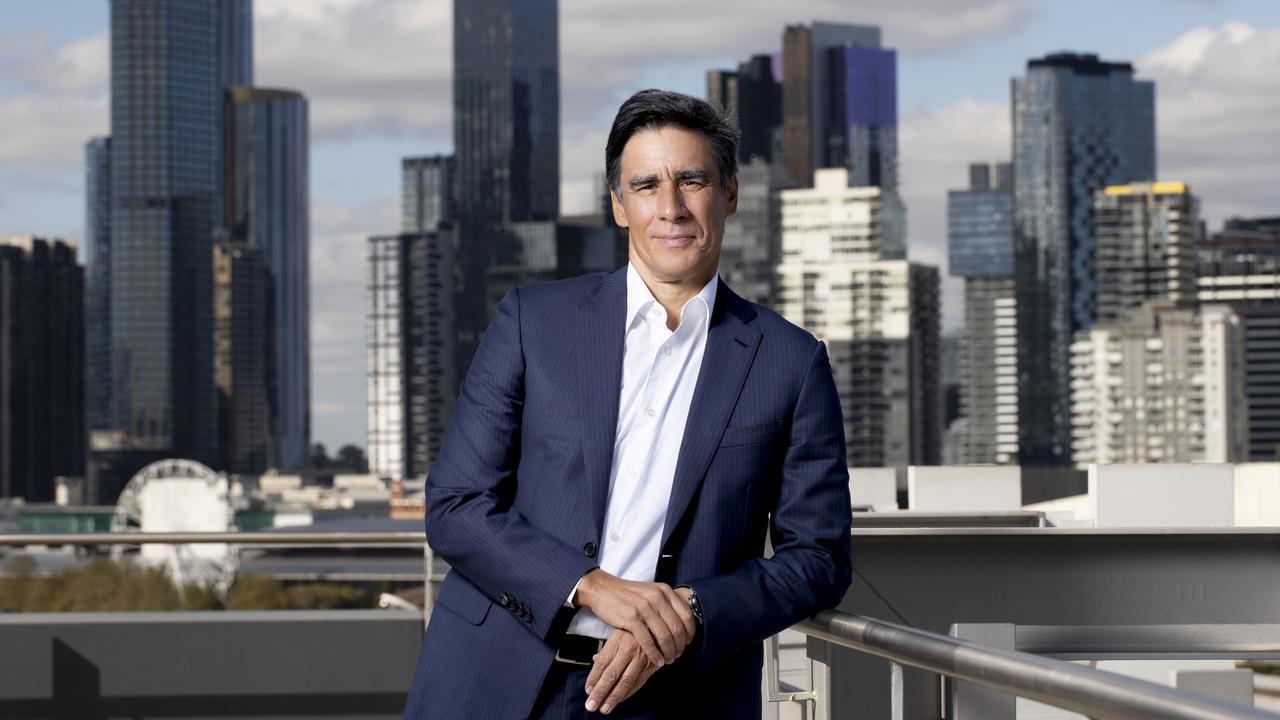
based on Thursday’s $2.7bn in writedowns. Origin also issued a profit warning on Thursday, with both companies facing the reality of more supply from renewables at a time when demand is down slightly and, on the law of economics, that means lower prices.
Redman confided that “the long-term outlook for wholesale electricity and renewable-energy certificates now indicate a sustained and material reduction in price”.
Not exactly bullish.
Its stock price fell 3.6 per cent to $11.42, on adjusted terms a six-year low and 60 per cent down over three years.
Without major surgery, it is difficult to see where the upside will come from and it won’t be from mobile phones.
Consumers are yet to see much of a difference in their bills, in part because 50 per cent of a bill is taken by poles and wire distributors, and the industry also hedges prices normally three or four years out so it takes some time for prices to be passed on.
The ACCC can see the massive supply-driven effect on the market and has the job of ensuring consumers enjoy the benefits of sustained falls in wholesale prices.
Rooftop solar power is now of a scale to supply 9 per cent of all electricity deals. Throw in wind power and that percentage climbs to 23 per cent.
Redman’s problems date back in part to the Michael Fraser years between 2006 and 2012, when he was part of the strategy team.
Over the years AGL has had more corporate strategies than most have had hot breakfasts and Redman, who used to work in corporate strategy, has seen a few backflips in his time.
After his flutter on wind, AGL went full tilt back into coal-powered power stations, which are now facing even bigger remediation costs as outlined in the writedowns.
Fraser booked big development profits on wind-power farms in part due to the fact AGL would agree to pay what now look like outlandish prices for the offtake.
Investors rushed to support the wind farms, given the developer — AGL — was agreeing to long-term contracts on big prices.
Those very same contracts that are way out of the money today were the onerous contracts Redman talked about in disclosing a $1.9bn writedown against his last profit.
The contracts were part of Fraser’s financial engineering when he was keen on wind farms. Redman, to his credit, has tried to unwind them before but the reality is AGL is in need of major surgery.
The company will also write down $1.1bn to cover the fact it has underplayed the cost of remediating its coal-fired power stations when they are closed in coming years. AGL has the liabilities booked to its balance sheet but more reality has meant the costs will be higher than once thought.
There are some other pluses and minuses due to tax effects and other items, but the end effect is a $2.7bn writedown.
They will not be the last because the fact is renewables are bringing down the cost of power, which should make Energy Minister Angus Taylor happy.
Industry analyst David Leitch, writing in Renew Economy, has argued it is time for Redman to come clean and split the company into two — a good co and bad co, with the latter being its power stations and the former its powerful retail arm.
He drew the line at the thermal coal assets and the rest.
By dividing the shares, shareholders can move forward with a degree of certainty and he will at least get some upside.
AGL this week has played spin doctor, starting with blue sky talking up its mobile phones, but the week ended with reality, which means wholesale margins will be slashed and the days of excess profits from production are over.
The issue now is whether Redman has the courage to make the big changes necessary.
Shipton back on deck
Returned ASIC chair James Shipton will have an early chance to show his wares with the Parliamentary Joint Committee due to have ASIC presenting on February 19. Shipton returned to work on Monday in a deal that gives him the floor until a replacement is found.
Several members of the committee, including NSW backbencher Jason Falinski and senator Andrew Bragg, have been critics of ASIC under Shipton.

BNPL crackdowns
Afterpay’s stock price continued to climb on Thursday in the wake of a UK Financial Conduct Authority report on the “buy now, pay later” sector.
The surprise being the local market noted the report without also noting that ASIC has already flagged regulatory action in its November report on the industry.
In its report, ASIC made clear “there are regulatory changes coming that will impact the industry, with the design and distribution obligations coming into effect in October 2021”.
The DDO regime is the centrepiece of ASIC’s regulation of the financial services sector.
In short, the rules put the onus on product producers such as fund managers, insurers and banks to ensure their products are appropriate for their target market and are distributed accordingly.
Product distributors are responsible for telling manufacturers if their product is misplaced.
Those who play ball will escape scrutiny, but the message is that those who don’t will be hit from all angles.
The ASIC “buy now, pay later” report made clear the fast-growing industry was on notice given it has grown quickly and one in five people have missed payments.
The report noted missed payments fees for the industry totalled $43m in the 2019 financial year, a 38 per cent increase on the prior year.
ASIC said “while working for the majority of users, some consumers are suffering harm”.
“ASIC expects the industry to work collectively to develop a code that provides good consumer outcomes across the diverse range of business models,” it added.
ASIC and the FCA consulted on their respective reports and the market in the UK is tougher given the extended COVID lockdowns.
Pact’s new plant
Pact Group boss Sanjay Dayal will launch his $45m joint venture plastic bottle recycling plant near Albury today, two months ahead of schedule, which will see the first output by year’s end.
The plant being built with Cleanaway and Asahi will recycle one billion PET bottles a year, producing 13,000 tonnes of resin to be used by Asahi and Pact with Cleanaway collecting the bottles.

The circular economy is key to Pact’s strategy and Dayal is establishing a research centre in Victoria to help look at better ways to use recycled material in packaging.
He is building a plant in Laverton with others in Queensland and Western Australia and a 5000-tonne plastic facility in New Zealand through his Flight acquisition. Pact is a big supplier of wheelie bins for garbage that will be made from up to 80 per cent recycled product.
COVID has been good for Pact with its coat hanger business doing well for better clothes sales, sanitiser sales booming and the trend of eating at home driving supermarket sales.








AGL boss Brett Redman will have to do a lot more than sell mobile phone contracts if he is to claw back earnings from past energy mistakes